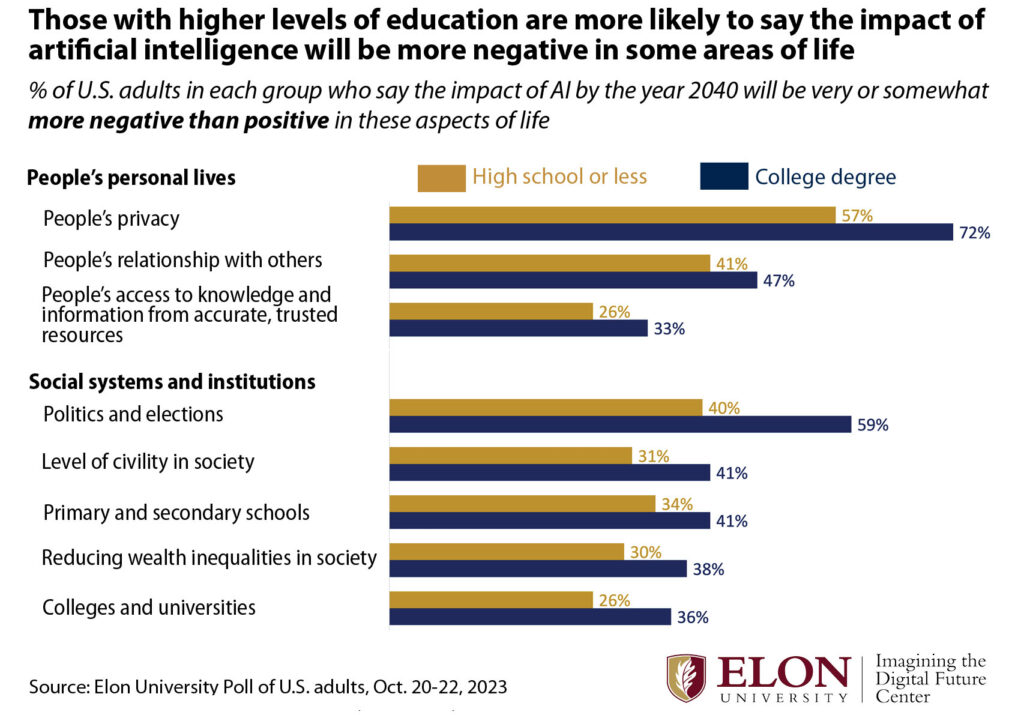There are some patterns in the general public survey data that are worth noting. Those with higher levels of education – a college degree or more – are more likely than those with a high school education or less to say the effects of AI will be more negative than positive. Some areas where that shows up: concerns about people’s privacy, politics and elections, colleges and universities, wealth inequalities and the level of civility in society.

Those with higher levels of education are considerably more upbeat about the impact of AI on people’s day-to-day work activities. Some 46% of those with college degrees say the effect of AI will be more positive than negative on people’s day-to-day work tasks, while 21% of those with high school or less education think so.
Women and men at times have different views about the impact and outcomes of the technology. For instance, women are more pessimistic than men when it comes to the effect of AI on people’s opportunities for employment and on their overall physical and mental health. Men are somewhat more doubtful about the impact of AI on people’s leisure time.
There are also some differences by race and ethnicity. White Americans are generally more likely than Black Americans to say the impact of AI will be more negative than positive. That includes their views on the influence of AI when it comes to privacy, access to accurate information, the level of civility in society and politics and elections. The views of Hispanic Americans on these issues usually sit between Black Americans and White Americans. (There were not enough Asian Americans in the sample to do a statistically reliable analysis. At the same time, the views of Asian American adults were included in the overall sample.) On many of these issues, Black Americans and women were particularly likely to say they were not sure what the impact of AI would be on various aspects of life.


